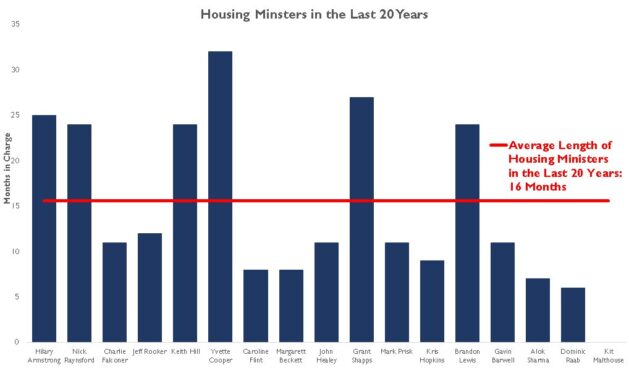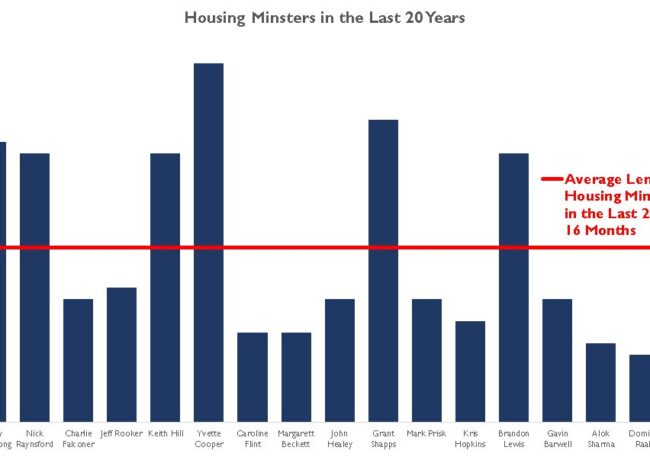RESOURCES | Housing Minister: A more precarious role than football-manager?

Nicola Deutsch of Slater Heelis comments on the tenuous position of Housing Minister in modern government.
It is generally understood being a football manager, especially in the Premier League, is one of the most precarious jobs in the world.
Research last year revealed the average Premier League boss takes charge for just 1165 days, with a win ratio of 30%.
Football chairmen are renowned for their ruthlessness but pundits and fans are often of the same opinion; this doesn’t give a manager time to stamp his own authority on the job, to build a team and playing strategy that will produce the goods over the long haul.
Even the staunchest of City fans can’t deny Alex Ferguson was able to deliver success after being given a reprieve in his early Man United days.
There is one job role, however, that makes Premier League football management seem a safe and secure profession – that of housing minister.
The average length of a housing minister over the past 20 years is just 16 months. And only six of the 20 ministers to hold this role in the past 20 years have managed to last beyond 16 months. In fact, eleven ministers didn’t even make it to their first anniversary!
Yvette Cooper is the nearest to Sir Alex in terms of length of service, holding office for some 32 months compared to Ferguson’s 27 years. The comparison of success is more debatable.
More seriously, how can ministers be expected to see through government policy proposals and achieve goals for increased housing supply when they are only in office, on average, for 16 months?
Housing ministers appear to be the equivalent of lower league managers. Impress and they quickly get a promotion to a different role. Struggle and they’re out of the door faster than you can say ‘Help-to-Buy’.
Of course, the duration of a housing minister is dictated by many outside factors; none more so than the role of democracy.
However, we are now in a position where we have had four housing ministers in the past two years alone, hardly inspiring confidence that the apparent housing crisis is being treated with as much respect as it deserves.
The latest arrival
The latest incumbent to the role is Kit Malthouse. Appointed minister for housing in July 2018 he became the eighth minister in eight years to look after housing.
His initial appointment was met with mostly positive industry reaction, particularly given his links with housing and welfare.
However, Mr Malthouse recently announced the annual new supply of new social rent housing by 2021 is not likely to rise above 12,500.
And in one of his first public appearances in the role, Mr Malthouse has suggested he is open-minded to whether changes should be made to allow cash-strapped councils to capitalise on the uplift in land value that comes from public infrastructure investment but seemed to rule out the introduction of a new land value tax.
The issues of the money market which has largely defined the housing boom and bust and boom again over the past twenty years is out of the hands of a housing minister.
But developing and implementing a strategy that incentivises developers to develop, buyers to buy and investors to invest takes longer than 16 months.
Even the most hard-nosed football chairman could see that.
This article was originally published on Place Resources.




